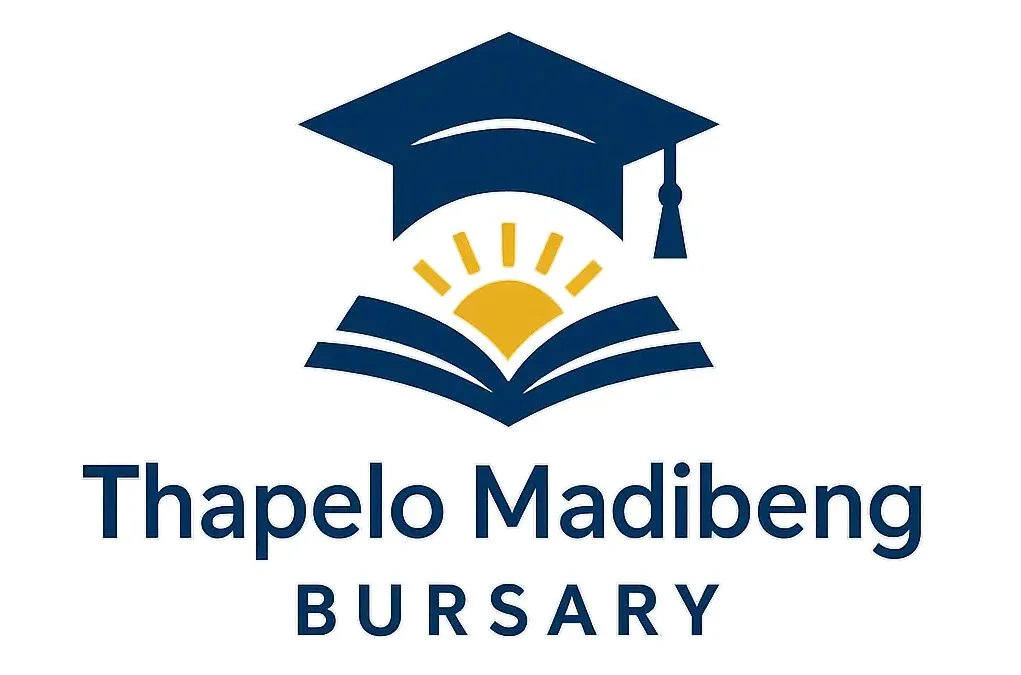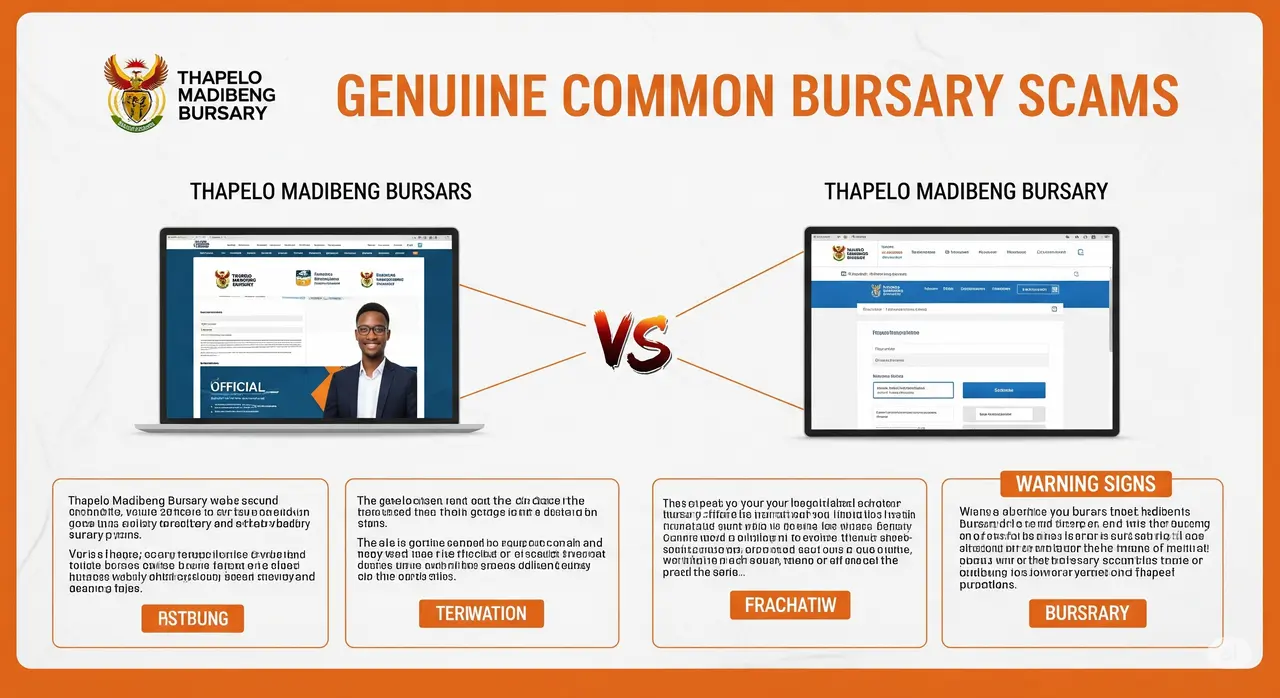Securing funding for education is a critical step for many students. The promise of a bursary can be life-changing, providing access to higher education and opening doors to future opportunities. Unfortunately, the landscape of financial aid is also populated by unscrupulous individuals and organizations seeking to exploit hopeful students. This article aims to equip you with the knowledge to identify and avoid common bursary scams, with a specific focus on how to differentiate legitimate opportunities from fraudulent ones, including insights into the real Thapelo Madibeng bursary website.
Understanding the Prevalence of Bursary Scams
The allure of free money for education makes bursaries a prime target for scammers. These individuals and groups often prey on the vulnerability of students desperate for financial assistance. The methods employed by these scammers are constantly evolving, making it crucial to stay informed and vigilant. Scams can range from sophisticated phishing attempts to outright requests for upfront fees, all designed to extract money or personal information from unsuspecting applicants. The consequences of falling victim to these scams can be devastating, including financial loss, identity theft, and the disappointment of missed educational opportunities.
Why Bursary Scams Thrive
Several factors contribute to the prevalence of bursary scams. The high demand for financial aid, coupled with the complexity of the application process, creates a fertile ground for fraudulent activities. Scammers often exploit the following:
- Desperation: Students facing financial hardship are more likely to take risks and trust seemingly credible offers.
- Lack of Awareness: Many students, especially those new to the application process, may not be familiar with the red flags of a scam.
- Online Accessibility: The internet provides scammers with a vast platform to reach potential victims, making it easier to disseminate fraudulent information.
Identifying Red Flags: Warning Signs of a Bursary Scam
Recognizing the warning signs of a bursary scam is the first line of defense. Be wary of any bursary opportunity that exhibits the following characteristics:
Upfront Fees
Legitimate bursary providers never require applicants to pay an upfront fee. Scammers often demand a fee for application processing, registration, or guaranteeing a bursary. This is a major red flag. If you are asked to pay money to apply, it is almost certainly a scam.
Guaranteed Awards
No legitimate bursary can guarantee an award. Bursary decisions are based on merit, financial need, and other criteria. Scammers often promise guaranteed awards to lure applicants. Be skeptical of any offer that promises a bursary without a thorough evaluation of your qualifications.
Unsolicited Offers
Be cautious of unsolicited bursary offers, especially those received via email, social media, or phone calls. Legitimate bursary providers typically do not actively solicit applications. Always verify the source of the offer before providing any personal information.
Requests for Excessive Personal Information
While bursary applications require some personal information, be wary of requests for excessive or sensitive data, such as your bank account details, social security number, or passwords. Scammers may use this information for identity theft or financial fraud.
Pressure Tactics
Scammers often use pressure tactics to create a sense of urgency and force you to make a quick decision. They may claim that the bursary is only available for a limited time or that you must act immediately to secure your funding. Take your time to research the opportunity and verify its legitimacy.
Poor Grammar and Spelling
Legitimate organizations typically maintain a professional image. Be wary of bursary offers with poor grammar, spelling errors, or unprofessional language. These are often indicators of a scam.
Unrealistic Promises
If a bursary offer seems too good to be true, it probably is. Be skeptical of offers that promise large sums of money or minimal requirements. Research the organization and verify its legitimacy before applying.
How to Verify a Bursary Opportunity
Before applying for any bursary, take the following steps to verify its legitimacy:
Research the Provider
Conduct thorough research on the bursary provider. Search online for reviews, testimonials, and any information about the organization. Check the organization’s website for contact information, mission statements, and details about its funding criteria. Look for a physical address and contact details that can be verified.
Check the Domain Name
If the bursary is offered online, carefully examine the website’s domain name. Scammers often use domain names that are similar to legitimate organizations to deceive applicants. Ensure the website is secure (look for “https” in the URL) and that the domain name matches the organization’s official name.
Contact the Provider Directly
If you have any doubts about the legitimacy of a bursary, contact the provider directly. Use the contact information listed on their official website, not the information provided in the bursary offer. Ask specific questions about the application process, eligibility criteria, and funding amounts.
Consult with Trusted Sources
Seek advice from trusted sources, such as your school’s financial aid office, career counselors, or family members. They can provide valuable insights and help you identify potential scams.
The Real Thapelo Madibeng Bursary: What to Look For
The Thapelo Madibeng bursary is a legitimate opportunity for students. To ensure you are interacting with the real Thapelo Madibeng bursary, consider the following:
Official Website
The official Thapelo Madibeng bursary website will have a professional design, clear information about the bursary, and accurate contact details. Look for a secure website (https) and a domain name that clearly reflects the organization’s name. The website should provide detailed information about eligibility criteria, application deadlines, and the application process.
Application Process
The application process for the Thapelo Madibeng bursary will be clearly outlined on the official website. It will likely involve submitting an application form, academic transcripts, proof of financial need, and other supporting documents. The application process will be transparent and free of any upfront fees.
Contact Information
The official Thapelo Madibeng bursary website will provide legitimate contact information, including a physical address, phone number, and email address. Verify the contact information by searching online for the organization’s details. Be wary of any bursary that only provides a generic email address or a PO Box.
Social Media Presence
Legitimate organizations often have an active presence on social media platforms. Check for the Thapelo Madibeng bursary’s official social media accounts to verify their authenticity. Be cautious of accounts with few followers, limited activity, or suspicious content.
Avoid Impersonators
Scammers may create fake websites or social media profiles that mimic the Thapelo Madibeng bursary. Always access the official website through a trusted source, such as a search engine or a link provided by a reputable educational institution. Be wary of any website or social media profile that appears to be a copy of the official site.
Reporting Bursary Scams
If you suspect that you have encountered a bursary scam, it is essential to report it to the appropriate authorities. Reporting scams helps protect other students and can lead to the prosecution of the perpetrators. Here’s how to report a bursary scam:
Report to the Relevant Authorities
In South Africa, you can report bursary scams to the South African Police Service (SAPS) or the National Consumer Tribunal. Provide as much detail as possible about the scam, including the name of the organization, the website address, and any communication you have received. You can also report the scam to the Competition Commission.
Contact Your Bank
If you have provided your bank account details or made any payments to a scammer, contact your bank immediately. They can help you take steps to protect your account and potentially recover any lost funds.
Warn Others
Share your experience with others to raise awareness about bursary scams. Post on social media, contact your school’s financial aid office, or share your story with friends and family. Spreading awareness can help prevent others from falling victim to scams.
Protecting Yourself: Best Practices for Bursary Applications
By following these best practices, you can significantly reduce your risk of falling victim to a bursary scam:
Research Thoroughly
Before applying for any bursary, conduct thorough research on the provider. Verify their legitimacy and ensure they meet your educational and financial needs.
Use Official Channels
Always access bursary information and application forms through official channels, such as the organization’s website or your school’s financial aid office.
Never Pay Upfront Fees
Never pay any upfront fees to apply for a bursary. Legitimate bursary providers do not charge application fees.
Protect Your Personal Information
Be cautious about sharing your personal information online. Only provide information to trusted sources and avoid sharing sensitive data, such as your bank account details or social security number, unless absolutely necessary.
Trust Your Instincts
If something feels wrong, trust your instincts. If a bursary offer seems too good to be true or if you have any doubts about its legitimacy, do not proceed with the application.
Stay Informed
Stay informed about the latest bursary scams and fraud prevention techniques. Regularly check reputable websites and resources for updates and alerts.
Conclusion
Navigating the world of bursaries can be challenging, but by staying informed, vigilant, and proactive, you can protect yourself from scams and secure the financial assistance you need to achieve your educational goals. Remember to always verify the legitimacy of any bursary opportunity, and be particularly cautious of offers that exhibit the red flags discussed in this article. By following these guidelines, you can increase your chances of finding legitimate bursaries and avoid becoming a victim of fraud. Always prioritize your safety and security when seeking financial aid for your education.

